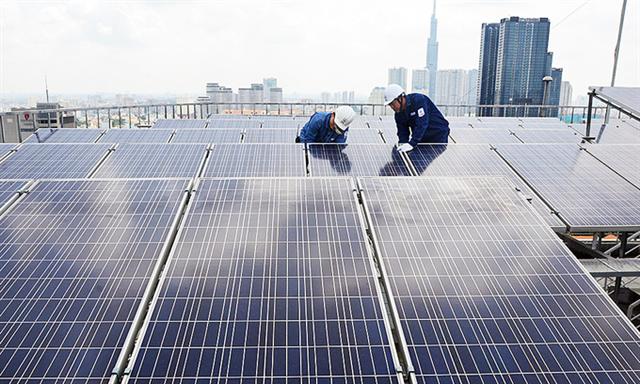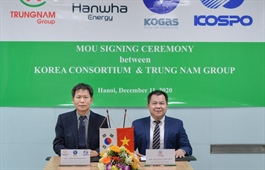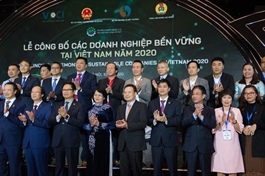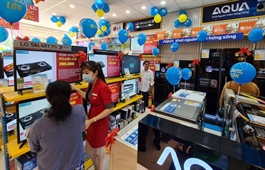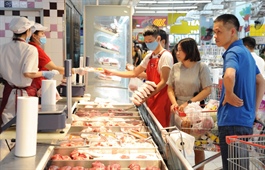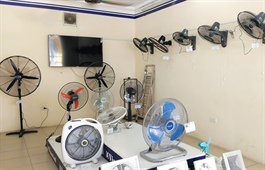US to help Vietnam develop clean energy
US to help Vietnam develop clean energy
The U.S.’s official aid agency has signed an agreement with national utility Vietnam Electricity (EVN) for rooftop solar power generation.
EVN staff establish a rooftop solar system for a resident house in Ho Chi Minh City, August 2020. Photo by EVN.
|
The Vietnam Urban Energy Security project, which the United States Agency for International Development (USAID) funds and runs, formalized a partnership Monday to support EVN’s efforts to expand rooftop solar (RTS) energy generation.
Power demand in Vietnam is growing by 10 percent annually, making it critical for the country to use modern, clean technologies to sustain its rapid economic growth while also protecting human health and the environment.
Vietnam’s demand for electricity might rise to 90,000 MW by 2025 and double that by 2030, the Ministry of Industry and Trade has said. The current capacity is more than 68,000 MW in the first 11 months, up 3.19 percent against the same period last year.
EVN has set a high target for RTS capacity by 2025 and is putting in place tools to help consumers understand how to adopt cleaner energy.
By September 2019 the registered capacity of solar power plants had reached 25,000 MW, racing ahead of the government's target of 4,000 MW by 2025, according to EVN.
It said renewables currently account for 9 percent of Vietnam's energy mix, surpassing the target of 7 percent set for 2020.
But RTS adoption would threaten EVN’s revenues and potentially the power grid by reducing voltage quality and causing power losses, USAID said.
To address these challenges, and ultimately increase RTS capacity, EVN will conduct utility financial impact analyses of various rooftop solar deployment scenarios in Da Nang with support from USAID through the new agreement.
Policymakers and EVN would be informed about the short-term impacts in the early phases of their rooftop solar programs, the aid agency said.
Through the agreement, USAID will also help EVN evaluate rooftop solar systems in its distribution network, build its capacity to mitigate adverse impacts to the grid and design and run innovative communication campaigns to promote rooftop solar.
"We are excited to work with EVN and hope our extensive experience promoting clean energy in the region, access to technical expertise and global convening power will help Vietnam realize its goals in renewable energy," Ann Marie Yastishock, mission director at USAID Vietnam, said.
The $14-million Vietnam Urban Energy Security project was instituted in November last year, and will be run through 2023.
At its launch, USAID had said the project would promote advanced energy solutions in HCMC and Da Nang to support deployment of household rooftop solar and next generation battery storage technologies, cleaner forms of transportation such as electric vehicles and other innovative solutions suitable for local conditions.
The ministry has warned of power shortages of 3.7 billion kWh in 2021 and nearly 10 billion kWh the following year as construction of new thermal and gas-fired plants fall behind schedule.
The shortage will peak in 2023 at around 15 billion kWh before starting to drop to 7 billion kWh and 3.5 billion kWh in 2024 and 2025.
Earlier this month EVN signed agreements to buy power from two hydropower plants and one coal-fired power plant in Laos from 2024.
In January it had signed deals with two other Laotian companies to buy 1.5 billion kWh of power each in 2021 and 2022.


